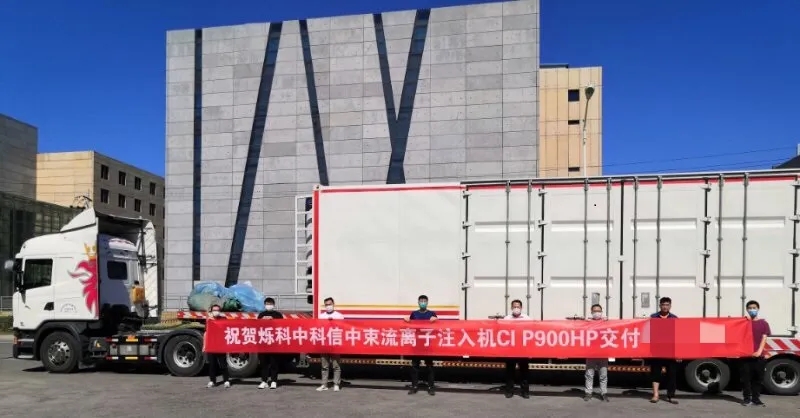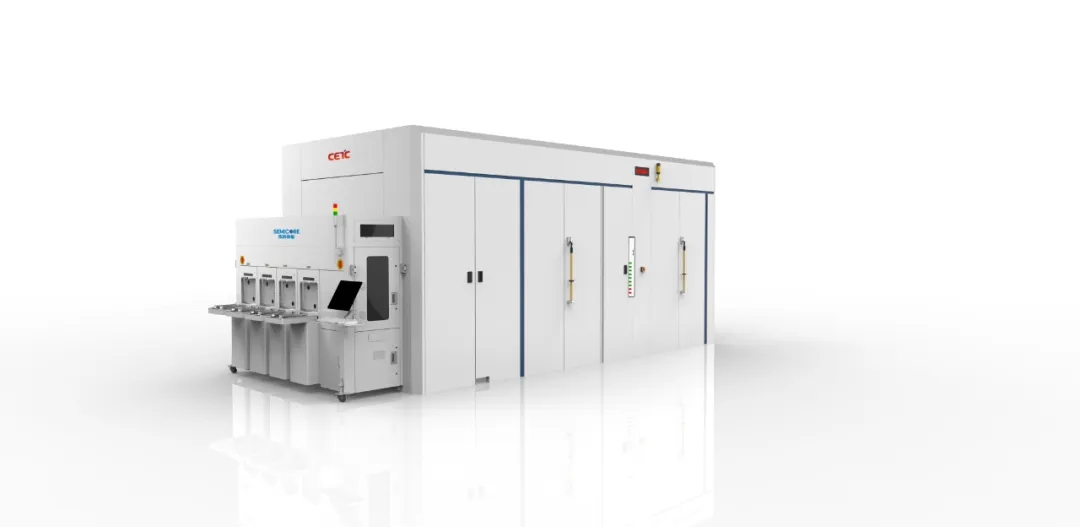Shuoke Zhongkexin: The domestic substitution of ion implanters speeds up the pace of
original Zhao Yuanchuang core ideas1 week ago
On June 15, 2020, Shuoke Zhongkexin announced that the 12-inch medium-beam ion implanter has been successfully moved into the large integrated circuit production line, which marks a new step in the marketization process of domestic ion implanters!
The development of CMOS technology has greatly promoted the development of ion implantation (Ion Implantation) technology. It can also be said that the continuous maturity of ion implantation technology has further improved the quality of integrated circuit products, especially the performance of CMOS products. When the line width enters sub-micron , ion implantation has become an indispensable process in the entire pre-manufacturing process of integrated circuits.
In the chip production process, multiple ion implantations are required, and the implantation times are different for different chip types and process nodes. With the rapid advancement of the CMOS process, the number of ion implantations also increases rapidly. For example, in the 1970s, only 6 to 8 injections may be needed to process an n-type metal oxide semiconductor (NMOS), but now 40 injections or even more are required for 28nm logic devices.
In the actual manufacturing process, the requirements for ion implantation are also different, such as junction depth (the energy given to ions during implantation), dose (the amount of impurities required for implantation), uniformity, repeatability, etc. All have different requirements. Generally speaking, the dose of ion implantation depends on the beam current value and time, and the implantation depth depends on the accelerating electric field. In order to meet these different needs, ion implanters with different processing capabilities are required in different links, including Medium Current ion implanters, High Current ion implanters, and High Energy ion implanters. injection machine.
There are relatively high competition barriers in the ion implanter industry for integrated circuits, and the industry concentration is relatively high. Overall, the entire market is dominated by American manufacturers. Applied Materials, Axcelis, and Advanced Ion Beam Technology (AIBT) together occupy 80% of the global market.
Driven by various policies, the research and development of ion implanters in my country has also made significant progress. A few days ago, the Beijing Science and Technology Award Work Office announced the results of the 2019 Beijing Science and Technology Award evaluation committee project evaluation results. Ion implanter suppliers Shuoke Zhongkexin and Kaishitong joined hands to participate.
Shuoke Zhongkexin focuses on the R&D and manufacturing of ion implanters for integrated circuits, and has always been committed to solving the problem of independent controllability of key technologies of ion implanters. It has formed medium beam, large beam, high energy, special applications and third-generation semiconductors. It has a full range of ion implanter product systems, has a post-doctoral scientific research workstation, and has established an ion implanter industrialization platform that meets the requirements of SEMI standards. The annual production capacity reaches 30 units. The products are widely used in world-renowned chip manufacturers and are highly recognized by customers.
The 12-inch medium-beam ion implanter delivered this time has excellent functions in terms of angle control, dose control, and equipment process capabilities, and the overall performance of the machine has reached the international level of similar products.
The person in charge of Shuoke Zhongkexin said that catching up with the mainstream is only the beginning, and the goal is to achieve domestic substitution in a system. The series of ion implanters independently developed by the company have run a total of 6.5 million pieces on the customer's production line, stably supporting the customer's mass production. In addition, a professional after-sales service team has been established to implement a 7X24 On Call response mechanism to continuously improve customer experience and accelerate the process of localization.


